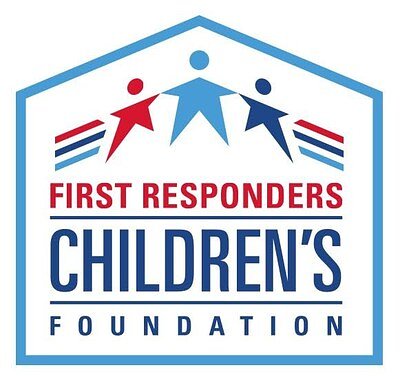
Beyond the Uniform: First Responders’ Families Receive Critical Support as Demands Rise
As first responders face increasing stress and burnout, a growing network of support is stepping up to address the often-overlooked needs of their families. A closer look at the challenges and the organizations making a difference.
Beyond the Uniform: First Responders’ Families Receive Critical Support as Demands Rise
New York, NY – While headlines often focus on the bravery and dedication of first responders, the silent struggles faced by their families often remain unseen. As demands on these essential workers continue to rise, coupled with increased stress and trauma, a network of organizations – including the First Responders Children’s Foundation (FRCF) – is stepping up to provide critical support, addressing the unique challenges faced by those who support the protectors.
This year's “Roll Call of Heroes” event, hosted by FRCF and attended by advocate Jon Stewart, highlighted the organization’s commitment to supporting the well-being of first responder families. But beyond the annual event, a deeper look reveals a growing need for comprehensive support systems, as the pressures on first responders, and consequently their families, intensify.
A Rising Tide of Stress and Burnout
Recent years have brought a surge in the demands placed upon first responders. From the COVID-19 pandemic to increasing rates of civil unrest and natural disasters, these individuals are consistently exposed to trauma and stress. This constant exposure has a ripple effect, impacting not only their own mental and physical health but also the stability and well-being of their families.
“The cumulative effect of witnessing trauma, facing danger, and working long hours takes a significant toll,” explains a mental health professional working with first responders. “Families often bear the brunt of this stress, experiencing increased conflict, emotional distance, and financial hardship.”
This burnout isn’t limited to frontline personnel. Spouses and children often grapple with anxiety, fear, and the emotional strain of having a loved one constantly putting their life on the line. Financial instability can also become a major concern, particularly for families where the first responder is temporarily unable to work due to injury or illness.
Filling the Gaps: FRCF and Beyond
The First Responders Children’s Foundation has emerged as a crucial lifeline for these families. Since its inception, the organization has provided over $15 million in scholarships, ensuring that children of fallen or injured first responders have access to educational opportunities. In 2023 alone, 420 scholarships totaling $2.1 million were awarded.
However, FRCF’s support extends far beyond scholarships. They also provide mental health services, crisis counseling, and disaster relief grants. Last year, they distributed $1.8 million in disaster relief, assisting over 350 families impacted by natural disasters and other emergencies. “We aim to provide holistic support, addressing not only the financial needs of these families but also their emotional and psychological well-being,” says an FRCF representative.
FRCF isn’t working in isolation. Several other organizations are dedicated to supporting first responder families. The National Fallen Firefighters Foundation provides assistance to families of fallen firefighters, while the Police Unity Tour raises funds and awareness for fallen officers. Government programs, such as those offered by FEMA and the Department of Justice, also play a critical role, providing crisis counseling, financial assistance, and support for officer safety and wellness.
The Invisible Strain: Spouses & Children Speak Out
While the support systems are growing, the challenges faced by families remain significant. “It's a constant worry,” shares a spouse of a police officer, requesting anonymity. “You never know what each day will bring. The stress of wondering if he’ll come home safe is always there.”
The emotional toll on children can be particularly acute. “My daughter used to have nightmares after hearing sirens,” recalls another spouse. “It took a lot of therapy and reassurance to help her cope.”
Financial insecurity can exacerbate these challenges. “When my husband was injured on duty, we struggled to make ends meet,” admits a mother of two. “The support we received from organizations like FRCF was a lifesaver.”
Looking Ahead: Sustainable Support & Preventative Measures
The increasing demands on first responders, coupled with the growing awareness of the challenges faced by their families, necessitate a more sustainable and proactive approach to support. Experts emphasize the importance of preventative measures, such as stress management training, peer support programs, and access to mental health services.
“We need to create a culture that prioritizes the well-being of first responders and their families,” says a mental health professional specializing in trauma. “That means providing access to resources, reducing stigma, and fostering a supportive environment.”
Long-term financial sustainability is also crucial. Increased funding for organizations like FRCF, coupled with greater collaboration between government agencies and non-profit organizations, is essential to ensure that these families receive the support they need.
“We can’t expect first responders to protect our communities if we don’t take care of their families,” emphasizes an FRCF representative. “They are the backbone of our society, and they deserve our unwavering support.”
The Roll Call of Heroes event, and the work of FRCF, serves as a powerful reminder of the sacrifices made by first responders and their families. It’s a call to action for communities to step up and provide the resources and support necessary to ensure that these essential workers, and those who love them, receive the care they deserve. The conversation is shifting from recognizing the problem to implementing solutions, and the future hinges on a collective commitment to prioritize the well-being of those who dedicate their lives to protecting us all.
